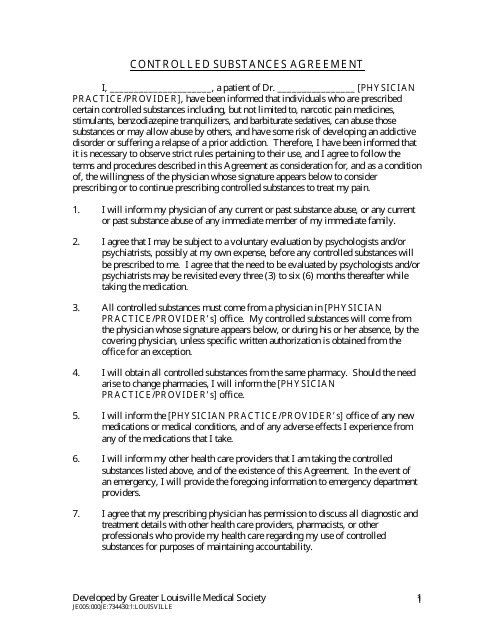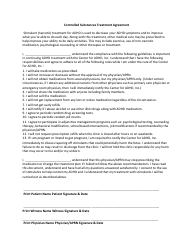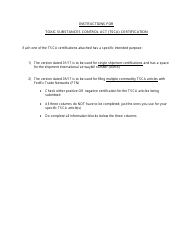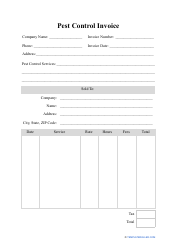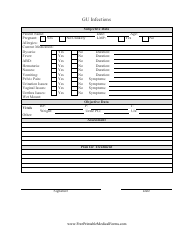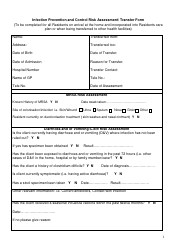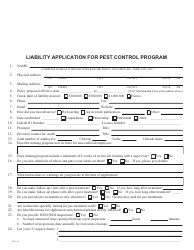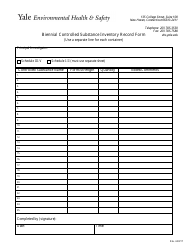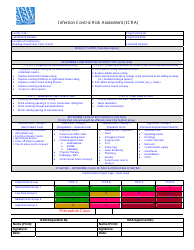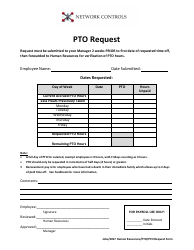Controlled Substances Agreement - Greater Louisville Medical Society
The Controlled Substances Agreement of the Greater Louisville Medical Society is a document that serves as a contract between patients and their healthcare providers. It sets out certain rules and expectations that need to be followed when patients are prescribed controlled substances to manage their pain.
The Agreement ensures that patients understand the safe use of these medications, the risk of addiction, and the consequences of misuse. It also obliges them to use the prescribed medication responsibly, seek medical advice before altering the dose and work toward improving overall health. This is aimed at limiting overuse, misuse, or diversion of narcotics and other controlled substances.
This way, the Controlled Substances Agreement aims to promote better patient care, health outcomes, and prevent drug abuse and addiction – a significant issue in many parts of the United States. It is part of a broader medical strategy encompassing patient education, regular review of treatment effectiveness, and close monitoring to ensure adherence and detect any signs of misuse or addiction.
The Controlled Substances Agreement - Greater Louisville Medical Society is typically completed and filed by physicians or medical practitioners within the Greater Louisville Medical Society who are permitted to prescribe controlled substances. The agreement outlines the responsibilities and usage instructions for these substances. It's part of the commitment to maintain the integrity of medical practices when handling, prescribing, or distributing controlled substances.
FAQ
Q: What is the Controlled Substances Agreement of the Greater Louisville Medical Society?
A: The Controlled Substances Agreement of the Greater Louisville Medical Society is a document that outlines policies, procedures, and regulations related to the use, prescription, and management of controlled substances. It's designed to mitigate drug misuse and ensure the well-being of patients involved in certain types of medical treatment.
Q: Who is subjected to the Controlled Substances Agreement of the Greater Louisville Medical Society?
A: This agreement applies to all healthcare providers who are part of the Greater Louisville Medical Society, as well as their patients. Health care providers include doctors, nurses, pharmacists, and others who are authorized to prescribe or distribute controlled substances.
Q: In what context is the Controlled Substances Agreement of the Greater Louisville Medical Society used?
A: This agreement is primarily used during the care of patients who require treatment with controlled substances - typically powerful drugs that have the potential for abuse or dependency. This includes, but is not limited to, opioids, stimulant medications, and certain types of anxiety or sleep disorder drugs.
Q: Which organization is responsible for the Controlled Substances Agreement of the Greater Louisville Medical Society?
A: The Controlled Substances Agreement is managed and enforced by the Greater Louisville Medical Society, an organization representing medical professionals in the Greater Louisville area. The Society works in collaboration with other regulatory bodies to ensure compliance with the agreement by its members.
Q: What types of drugs are usually classified as controlled substances?
A: Controlled substances, as defined by the Drug Enforcement Administration (DEA) in the U.S., are drugs that have a high potential for abuse and dependency. These usually fall under categories such as narcotics (like hydrocodone and morphine), depressants (like barbiturates), stimulants (like amphetamines), hallucinogens (like LSD), and anabolic steroids.
Q: Why is it necessary to have a Controlled Substances Agreement in a medical society?
A: A Controlled Substances Agreement is important for maintaining patient safety and the integrity of medical practice. It helps to minimize the potential misuse or abuse of potentially harmful drugs by setting standards and protocols for prescribing and monitoring. This agreement also sets a pathway for cooperation between practitioners and regulatory agencies in addressing issues of drug misuse and addiction.
